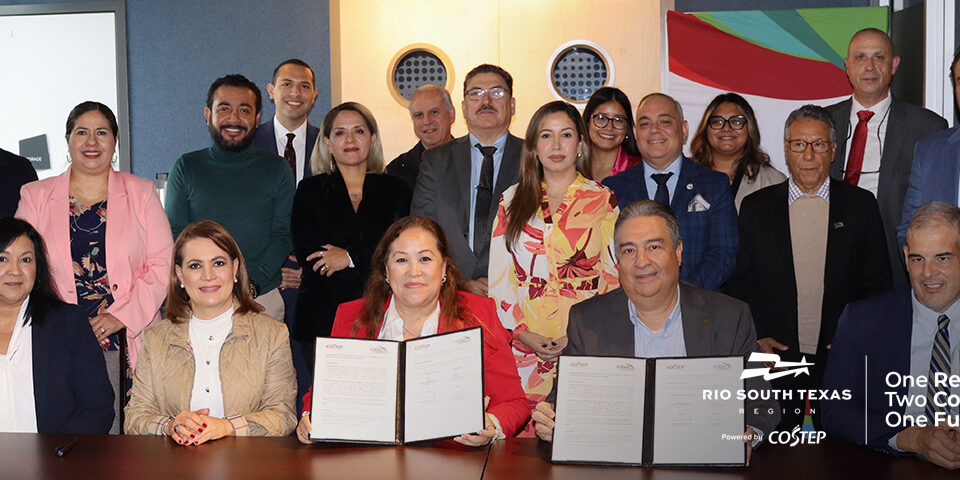
Strengthening Rio South Texas Region: COSTEP at the Pharr EDC Industrial Warehouse Summit
October 7, 2025
Rio South Texas Spotlight: Why Invest in Harlingen?
October 10, 2025A new chapter for binational talent and innovation.
With a vision to strengthen academic–industrial collaboration across the U.S.–Mexico border, the Council for South Texas Economic Progress (COSTEP) presented regional educational leaders with a proposal to establish the Binational Higher Education Advisory Council.
This pioneering initiative aims to coordinate efforts among universities, institutes, clusters, and economic development organizations across South Texas and Northern Tamaulipas—a region that includes key cities such as Laredo, McAllen, Brownsville, Harlingen, Edinburg, Pharr, Mission, Reynosa, Matamoros, Nuevo Laredo, and Miguel Alemán. Together, they form a strategic corridor for industry, innovation, and investment.
The creation of this Council seeks to close that gap between higher education programs with labor market needs and nearshoring opportunities.
A Strategic Platform for Talent Development
According to Adam Gonzalez, CEO of COSTEP, one of the Council’s pillars will be the creation of a regional data system that integrates educational offerings from both sides of the border.
This system will allow economic development organizations and investment promotion agencies to deliver strategic, data-driven insights to companies considering new operations in the region.
By compiling and analyzing information on universities, technical schools, enrollment levels, predominant majors, industry partnerships, and specialized training programs, the Council will help align academic output with current business needs and future industry demands.
The goal: to guide new generations toward careers of higher regional relevance, competitiveness, and growth potential.
A Win for Academia, Industry, and Communities
The Binational Higher Education Advisory Council will deliver measurable value across multiple sectors:
- Universities: curriculum modernization, academic mobility, and dual-degree programs.
- Companies: access to specialized, bilingual talent in key industries such as automotive, aerospace, medical, and electronics.
- Governments and EDCs: stronger industrial clusters and an improved capacity to attract investment.
- Communities: more skilled jobs, upward mobility, and sustainable economic growth.
Participating Institutions and Next Steps
The initial meeting gathered representatives from Universidad Tamaulipeca, Instituto en Ciencias Computacionales de Reynosa, Universidad Tecnológica de Tamaulipas Norte, TecMilenio, Universidad Miguel Alemán, Universidad Valle del Bravo, Cecati 177, and Cecati 105.
Adam Gonzalez highlighted that COSTEP has also initiated collaborations with educational partners in South Texas, including Laredo College, Texas A&M Internstional University, South Texas College, Texas Southmost College, Texas State Technical College, Valley Grande Institute , South Texas Vo-Tech, Texas A&M McAllen.
These joint actions mark a decisive step toward formalizing a binational model of talent and innovation, positioning the Rio South Texas Region and Northern Tamaulipas as a connected, competitive, and future-ready region.
Together, we are shaping the workforce of tomorrow, today.
Rio South Texas Region Works For You.




